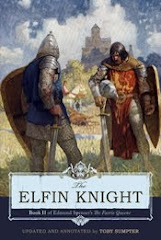The Shadow of Atlas
I kind of feel like Sam in the Tower of Cirith Ungol, a small insignificant hobbit watching the enemy shouting, cursing, stumbling and running away. And no, I'm not trying to insinuate anything about anyone opposing me. It's just funny.
As many of you know Moscow is currently being looked after by a small group of self elected Nannies. These women apparently believe no one knows how a city is best run, not even the city officials, mind you, and so they are busy tsk-tsking with all manner of 'concerned citizen' letters regarding boys in sweater vests downtown.
There are 15 boys enrolled in Atlas this year, but if you read the letters you'd get the impression we were 60 going on 150 boys plus teachers and staff. This is what tips me off to the fact that they obviously have never been in the classrooms we use nextdoor to the Nuart although they're absolutely sure that the boys are in constant mortal danger. But I would happily agree with anyone concerned if we really were stuffing 100 boys into a telephone booth for Latin class.
The troubling thing is that most of the time these Nannies continue to maintain, straight faced, that they don't mean us any harm. They just don't think we should meet there they say. The problem is that this is a patent lie. They are on a crusade to rid Moscow of Christian Education, particularly those institutions that stand with Douglas Wilson and Christ Church, giving modernity an enthusiastic rasberry. Thankfully the veneer is beginning to come off. In at least one of the complaint letters, one of the City Nannies makes it clear that she doesn't think Moscow needs a Christian boys school like Atlas. We need more of that kind of honesty.
The other problem is that there is no zone in the city of Moscow that welcomes schools. All schools exist on a provisional use permit. And the City of Moscow has already indicated that this permit can be waived if a handful of wackos quote lengthy sections from the Holy Zoning Code. The point being, there is no safe place to do education in Moscow. Open-minded? Diverse? Multicultural? What the Nannies really want is comformity, submission and silence.
But we'll be open on Monday, and 10 or 15 young men will come downtown to learn Latin and read the Bible together. That may sound very scary, but between you and me, it's just the shadow.
Thursday, August 25, 2005
Posted by Toby at 4:54 PM 0 comments
Friday, August 19, 2005
Because of Sarah
Notice that at the end of Genesis 20 the reason that Yahweh had closed up the wombs of the women in Abimelech's house is translated "because of Sarah". The Hebrew actually says "on the word of Sarah" which seems to suggest that she prayed for God to protect/judge her abusers, etc. That's kind of cool. But also of interest is the fact that 'davar' (the word for 'word') has the same consonants as the word for pestilence or plague 'dever'. So there's a bit of a pun going on there. This fits because this chapter is an Exodus in miniature, with God's people being oppressed by a wicked king, God's people lying to protect themselves, and in the end being delivered from the king's hand and going out with great possessions (another example is Gen. 12). But in this instance, the 'plague' God sends is Sarah. And, as my wife pointed out, Sarah is barren. So God sends barrenness on the women of Abimelech's house. But of course after God has opened the wombs of the Philistines, He opens Sarah's womb too.
Posted by Toby at 3:09 PM 0 comments
Saturday, August 06, 2005
Covenant Stuff
I haven't kept up with this stuff, and I'm sure everyone is way ahead of me here. There's a lot of great work being done on the Trinity right now and particularly the ramifications of a thorough going Trinitarian take on covenant theology.
But... I thought this was cool: Luke 22 has the last supper and the Passover and of course the institution of the Eucharist. It's weird that immediately after the Lord's Supper and the questioning as to who will betray their Lord, the disciples begin disputing about who should be considered the greatest. We know that the disciples were block heads sometimes, and so we (I) tend to read that everywhere. But Jesus doesn't miss a beat. He connects the dispute to the Lord's supper in verse 29-30. In 29 Jesus says "And I bestow upon you a kingdom, just as My Father bestowed upon Me." At least that's how it reads in my NKJV. But the word for "bestow" is the verb form of diathiki, the word for covenant or testament. Jesus is covenanting with his disciples a kingdom. There's some stuff there to unpack. But He uses the same word to describe what His Father did: "just as My Father covenanted (it might read) upon Me." Although I'm not one for 'proof texts' per se, this is a fine place to come to prove that a covenant does (or did) exist between persons of the Trinity.
That's probably old news for you. I think it's swell. But the other thing is the Kingdom-Covenant connection. The verb form for covenant has this regal connotation going on. To be in covenant is to be a subject of the King. The disciples were a lot quicker than I. They saw the cup of wine, and they heard Jesus tell them that it was His blood. When the 'testator' dies, the testament goes into effect (so saith Hebrews 9). The disciples saw the blood, heard the words and immediately they wanted to be made governors and princes. And Jesus didn't say, "No, there's no such thing..." He said this is how you get the highest position: by serving.
Posted by Toby at 3:22 PM 3 comments
























